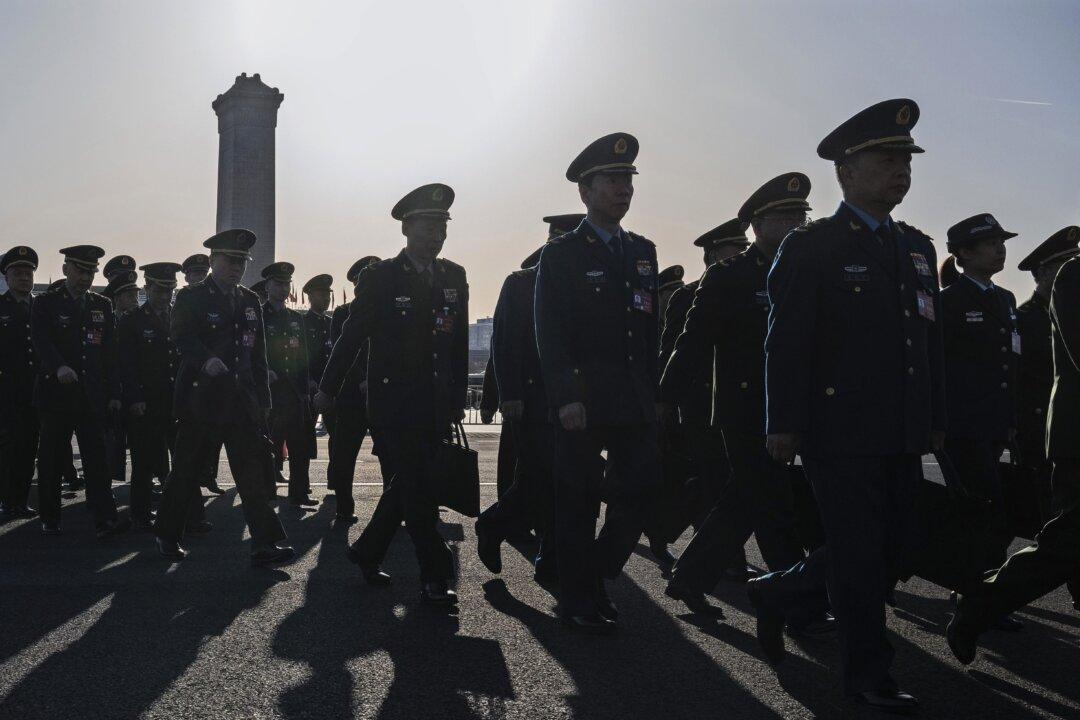An ongoing purge of top defense personnel by the Chinese Communist Party (CCP) has ensnared two more high-ranking military commanders.
The two top commanders were removed from their positions at the National People’s Congress (NPC) on Dec. 25, according to a statement from the standing committee of the NPC.




